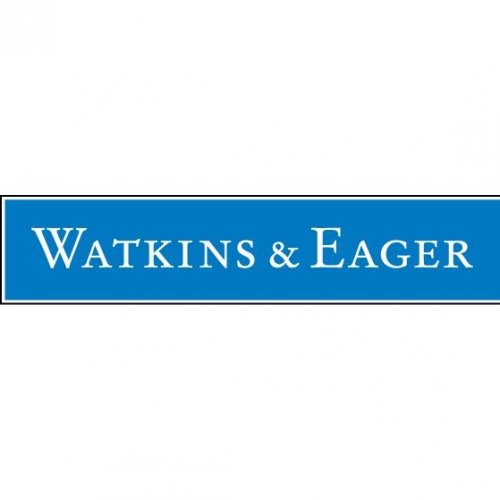Best Tax Increment Financing Lawyers in Birmingham
Share your needs with us, get contacted by law firms.
Free. Takes 2 min.
List of the best lawyers in Birmingham, United States
About Tax Increment Financing Law in Birmingham, United States
Tax Increment Financing (TIF) is a public finance mechanism employed in Birmingham, Alabama, as well as other parts of the United States, to stimulate economic development in blighted or underdeveloped areas. By capturing future tax revenue increases resulting from rising property values in a designated TIF district, local governments can fund infrastructure and encourage private investment without imposing additional taxes on residents. In Birmingham, TIF is often used to support projects like redeveloping vacant properties, building public facilities, or enhancing local infrastructure to attract businesses and create jobs.
Why You May Need a Lawyer
People seeking legal advice in the realm of Tax Increment Financing in Birmingham may encounter several situations where professional legal help is beneficial:
- Understanding TIF Agreements: A lawyer can help you comprehend the intricate agreements involved in TIF projects, ensuring you are aware of your rights and obligations.
- Negotiating Terms: Legal expertise is crucial in negotiating terms that align with your interests in TIF development agreements.
- Compliance Issues: Navigating the compliance landscape of TIF projects requires an understanding of local, state, and federal regulations, where a lawyer’s guidance is essential.
- Dispute Resolution: If disputes arise during a TIF project, legal representation can be critical in resolving conflicts through negotiation, mediation, or litigation.
- Project Planning: Legal advice can aid in the strategic planning of a TIF project, helping ensure that all potential legal challenges are anticipated and addressed.
Local Laws Overview
In Birmingham, Tax Increment Financing is governed by a combination of local ordinances and state laws. Key aspects include:
- TIF Eligibility: Birmingham’s statutes define criteria for areas that can be designated as TIF districts, focusing on regions that show potential for economic development but are currently underutilized or blighted.
- Approval Process: The Birmingham City Council is typically involved in the approval of TIF districts and projects, requiring public hearings and transparent growth plans.
- Funding Uses: Legal provisions dictate how the captured tax increments can be used, often prioritizing public infrastructure, transportation upgrades, and other community benefits.
- Reporting and Accountability: Local laws mandate regular reporting to ensure that TIF funds are managed efficiently and meet the development goals initially set forth.
Frequently Asked Questions
What is TIF and how does it work?
Tax Increment Financing helps revitalize districts by reinvesting the increased tax revenues from rising property values within the same area to fund public projects.
How is a TIF district created in Birmingham?
A TIF district is typically established by a resolution from the Birmingham City Council after a study confirms the area meets legal criteria for redevelopment.
Who oversees the TIF projects in Birmingham?
The Birmingham Development Board typically oversees TIF projects, ensuring compliance with local regulations and alignment with development goals.
Can TIF funds be used for any type of project?
TIF funds in Birmingham are usually earmarked for public infrastructure, site redevelopment, environmental remediation, and similar improvements to support private investment.
What are the risks involved in TIF for developers?
Developers face risks including delayed reimbursement of expenses if property values do not increase as expected, affecting anticipated returns on investment.
How does TIF affect local taxpayers?
TIF is designed to fund development without increasing taxes, as it uses future tax increments that result from rising property values rather than current taxpayer funds.
Can residents oppose a proposed TIF district?
Yes, public hearings required for TIF approval allow residents to express concerns or opposition to proposed TIF districts or projects.
How long does a TIF district last?
A TIF district in Birmingham typically lasts for a period ranging from 15 to 30 years, depending on the scope of the development and financing requirements.
Does Birmingham have many TIF districts?
Birmingham has several TIF districts, each aiming to address specific developmental needs and catalyze economic growth in underutilized areas.
How can a lawyer help with a TIF project?
A lawyer can provide strategic advice, ensure legal compliance, assist in negotiations, and represent parties in disputes related to TIF projects.
Additional Resources
For additional information and support regarding Tax Increment Financing in Birmingham, consider reaching out to the following resources:
- Birmingham's Economic Development Office: Offers guidance on current TIF districts and development opportunities.
- Alabama Department of Revenue: Provides statewide regulations and guidelines on property tax matters.
- Local Law Firms Specializing in Real Estate and Public Finance: For legal advice and assistance on TIF matters.
- University of Alabama at Birmingham (UAB): May offer research and resources through public policy or urban planning departments.
Next Steps
If you require legal assistance with a Tax Increment Financing matter in Birmingham, consider the following steps:
- Consult with legal experts specializing in real estate and public finance to understand the implications of TIF on your project.
- Contact your local economic development office to obtain updated information on existing TIF districts and available supports.
- Review public records and documents related to existing TIF projects approved in Birmingham for insightful precedents.
- Attend public forums and city council meetings to stay informed about new or proposed TIF districts in your area.
Lawzana helps you find the best lawyers and law firms in Birmingham through a curated and pre-screened list of qualified legal professionals. Our platform offers rankings and detailed profiles of attorneys and law firms, allowing you to compare based on practice areas, including Tax Increment Financing, experience, and client feedback.
Each profile includes a description of the firm's areas of practice, client reviews, team members and partners, year of establishment, spoken languages, office locations, contact information, social media presence, and any published articles or resources. Most firms on our platform speak English and are experienced in both local and international legal matters.
Get a quote from top-rated law firms in Birmingham, United States — quickly, securely, and without unnecessary hassle.
Disclaimer:
The information provided on this page is for general informational purposes only and does not constitute legal advice. While we strive to ensure the accuracy and relevance of the content, legal information may change over time, and interpretations of the law can vary. You should always consult with a qualified legal professional for advice specific to your situation.
We disclaim all liability for actions taken or not taken based on the content of this page. If you believe any information is incorrect or outdated, please contact us, and we will review and update it where appropriate.

















